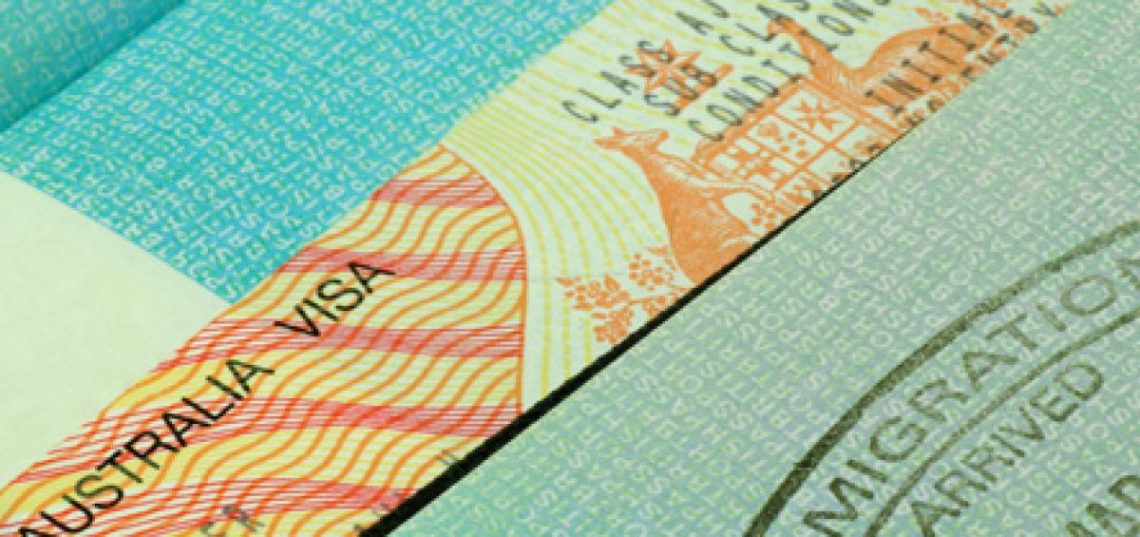
Every year, the Australian Department of Immigration and Border Protection receives thousands of work, family, student and migrant visas – many will be successful, but thousands will be knocked back.
Some applications will be refused because of fraud or ineligibility, but a number are denied due to innocent mistakes, inconsistencies or misunderstandings.
Applying for a business, partner, family, study or work visa can be a complex, demanding process – and it’s important to get it right. Here is how to do it right:
1 – Evidence is crucial
Work, family and business visas in particular can require a lot of substantiating evidence.
Relationships have to be proved, qualifications and work histories have to be demonstrated and asset holdings need to be shown.
The migration agents we spoke to said that everything you claim has to be demonstrated with evidence.
Some sources of evidence can be more influential than others, Rayner says.
Group certificates, tax returns, bank records and pay-slips are effective for proving employment.
Wealthy applicants applying for business visas can run into trouble if they have complex company or trust arrangements.
For partnership visas, the Immigration Department will demand evidence of a genuine, lasting relationship.
Joint bills and joint accounts can help with this, but given that some married couples don’t even have joint accounts, other forms of evidence are also acceptable.
2 – Be consistent
The Immigration Department will cross-check all of the information submitted, as well as bring up previous visa applications and government records to check for consistency.
Clearing up an inconsistency, even if it was innocent or accidental, can delay the process, cost money for professional advice, and potentially risk a denial.
Some migration paths involve multiple applications and multiple visas – such as the path from student, to graduate, to permanent resident – so ensuring all details on the applications remain consistent is vital.
3 – BE ACCURATE
The importance of accuracy is something all three agents agree on.
“We’re seeing a lot more applications getting picked up because of small, often very innocent mistakes,” Glenn Rayner tells us.
It’s important for applicants and it’s important for agents, Rowena Prasad says.
Being as detailed and accurate as possible – and cross-checking for consistency – will make your application process much smoother.
4 – BE HONEST
Acting with total honesty and integrity throughout the process is important, and if you get caught out the consequences can be serious.
The Department can issue bans on lodging further applications, and it will reflect poorly on your character for all future attempts.
That’s particularly important for Form 80, the identity and character assessment form.
The bans can be overturned in certain circumstances, but once you are issued a ban notice, it’s quite difficult to turn it around.
Providing fraudulent documents will earn you a quick, well-deserved denial, the agents said.
5 – Be organised
Being organised and laying out your documents logically and coherently can make the application process faster and easier for both the applicant and the assessor.
Highlighting relevant sections in documents, making sure they’re in chronological order, and that files are orientated the right way round is advisable.
You should make sure anything that requires translating is submitted with both the original and the translation.
Digital files should be uploaded and named with a description – ‘Passport’, ‘Police Certificate’, ‘Medical Certificate’ etc.
This will also assist you with your own record-keeping and locating documents if they need to be re-submitted or used for later applications.
This is important for resolving any potential disputes and keeping track of what you have already submitted.
6 – BE AWARE OF INCONSISTENT PUBLIC RECORDS AND SOCIAL MEDIA PROFILES
Applicants should be aware that the Department will search through public records and social media profiles, and verify educational records with the original institutions.
There are legitimate reasons for some inconsistencies, but anticipating them and pre-emptively explaining potential concerns is the best approach.
Information on public social media profiles which is inconsistent with information in your application could cause headaches.
Rayner tells us he had a similar issue.
That issue cost the applicant time and service fees to resolve.
In a recent case which went to Federal Court, an asylum seeker was denied his visa based partly on his Facebook profile.
On his profile he described himself as Muslim, while in his application he said he had converted to Christianity.
7 – ABIDE BY TIMING AND DEADLINE RULES
Being aware of timings and submission rules is important, as the Department can be quite inflexible.
For example, there’s a requirement for some visas that you pass an English test and submit the results in the first part of the application.
You should not only be aware of deadlines, but also expiration dates.
Partnership visas can take upwards of 12 months to process, but require recent medical certificates at the time of processing.
Missing a deadline even by a small margin can void an entire application, but in a small number of cases there can be ways around it.
8 – Pay attention to detail
It’s important when it comes to accuracy, but it’s also important when it comes to following instructions and abiding by a process which can – at times – be counter-intuitive.
There can be several, similar headings – and the right one may not be the most intuitive one, so it’s important to check.
9 – Make sure you use the right visa
It may sound pretty basic, but this one has tripped up more than a few people.
If you’re entering the country with the intention of staying long-term, you need to use the right visa at the first point of entry, or make sure you’re eligible for a bridging visa.
That could lead to your tourist visa being cancelled, or not being allowed in the country – and if that happens then it could have implications for future applications he says.
Some allow you to stay in Australia while they are being processed, others do not.
10 – USING A MIGRATION AGENT
A registered Migration Agent will be able to provide advice on which visa is most appropriate, assist with lodging a well-prepared application, and will know about immigration laws and procedures.
The Department says that using an agent can make the whole process easier and faster, but it is not a requirement.
Unsurprisingly – given they’d be out of a job without their clients – most migration agents recommend seeking professional advice and assistance.
The Department of Immigration runs a register of Migration Agents and binds them to a code of conduct.
They are required to charge reasonable fees and perform with competence and professionalism.
You can check to see if an agent is officially registered online, and you should ask for their registration number.
The Department says that unregistered agents have been known to defraud clients and lose important paperwork.
You can also find information about visas and the application process online.
Feel free to contact Best Migration Services for any questions.
Source: https://www.sbs.com.au/



